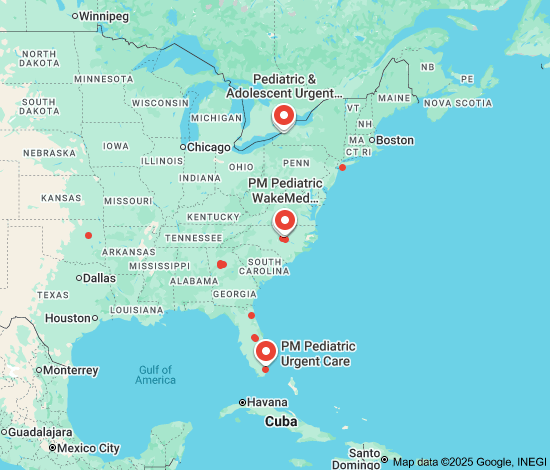
Empowering Group Success: The Essential Role of a Facilitator
The Role of a Facilitator in Group Dynamics
Facilitators play a crucial role in guiding and managing group interactions to achieve productive outcomes. Whether in a business setting, educational environment, or community organization, facilitators serve as neutral guides who help groups navigate discussions, decision-making processes, and problem-solving activities.
One of the key responsibilities of a facilitator is to create a supportive and inclusive environment where all participants feel heard and valued. By establishing ground rules for communication and encouraging active participation, facilitators help foster collaboration and teamwork within the group.
Facilitators also act as process experts, utilizing various techniques to structure discussions, brainstorming sessions, and conflict resolution processes. They may employ tools such as mind mapping, SWOT analysis, or consensus-building exercises to facilitate group decision-making and problem-solving.
Effective facilitators possess strong communication skills, empathy, and the ability to remain impartial while guiding group dynamics. They must be adept at managing group conflicts, addressing power dynamics, and ensuring that discussions stay focused on the intended goals.
Overall, facilitators play a vital role in helping groups maximize their collective potential by promoting open communication, fostering creativity, and guiding them towards actionable outcomes. Their expertise in group dynamics and process management can lead to more efficient meetings, increased productivity, and enhanced collaboration among team members.
7 Key Benefits of Having a Facilitator in Group Settings
- Facilitators promote open communication within groups.
- They help maintain focus and direction during group discussions.
- Facilitators create a safe and inclusive environment for all participants.
- They guide groups in decision-making processes and problem-solving activities.
- Facilitators foster collaboration and teamwork among group members.
- They assist in managing conflicts and addressing power dynamics within the group.
- Facilitators help maximize the collective potential of groups by promoting creativity and productivity.
7 Challenges Faced by Facilitators in Group Settings
- Facilitators may face challenges in managing group dynamics, especially in situations where there are conflicting personalities or strong opinions.
- Facilitators may struggle to maintain neutrality and objectivity, leading to potential biases that could impact the group’s decision-making process.
- Facilitators may encounter resistance from group members who are resistant to change or unwilling to actively participate in discussions or activities.
- Facilitators may find it challenging to balance time constraints and ensure that all agenda items are addressed within the allotted timeframe.
- Facilitators may lack the necessary expertise or experience in certain subject areas, which could hinder their ability to effectively guide discussions on complex topics.
- Facilitators may face difficulties in building rapport and establishing trust with group members, particularly in diverse or unfamiliar settings.
- Facilitators may experience burnout due to the demanding nature of their role, which requires constant facilitation of group processes and interactions.
Facilitators promote open communication within groups.
Facilitators excel in promoting open communication within groups by creating a safe and inclusive space where all participants feel encouraged to express their thoughts, ideas, and concerns freely. By establishing ground rules for respectful dialogue and actively listening to all perspectives, facilitators help foster a culture of transparency and collaboration among group members. This pro of facilitation not only enhances the exchange of diverse viewpoints but also ensures that all voices are heard, leading to more effective decision-making processes and stronger team cohesion.
They help maintain focus and direction during group discussions.
Facilitators excel at maintaining focus and direction during group discussions by guiding conversations towards the intended goals and outcomes. Their skill in keeping participants on track ensures that discussions remain productive and relevant, preventing tangents or distractions that could derail progress. By providing structure and clarity to the conversation, facilitators help groups stay aligned with their objectives, leading to more efficient decision-making processes and effective problem-solving strategies.
Facilitators create a safe and inclusive environment for all participants.
Facilitators excel in cultivating a safe and inclusive environment for all participants involved in group activities. By establishing ground rules that prioritize respect, active listening, and open communication, facilitators ensure that every individual feels valued and heard. This approach encourages diverse perspectives to be shared without fear of judgment, fostering a sense of psychological safety within the group. Through their guidance, facilitators create a welcoming space where participants can freely express their thoughts, ideas, and concerns, ultimately leading to more meaningful discussions and collaborative outcomes.
They guide groups in decision-making processes and problem-solving activities.
Facilitators serve as invaluable guides in group settings by steering participants through decision-making processes and problem-solving activities. Their expertise in structuring discussions, fostering collaboration, and utilizing various techniques enables groups to navigate complex challenges effectively. By providing a neutral perspective and facilitating constructive dialogue, facilitators empower groups to reach consensus, explore innovative solutions, and achieve productive outcomes.
Facilitators foster collaboration and teamwork among group members.
Facilitators excel in fostering collaboration and teamwork among group members by creating a supportive and inclusive environment where every individual’s input is valued. By encouraging active participation, facilitating open communication, and guiding discussions towards common goals, facilitators help build trust and rapport among team members. Through their expertise in group dynamics and process management, facilitators empower individuals to work together harmoniously, leveraging each other’s strengths to achieve collective success.
They assist in managing conflicts and addressing power dynamics within the group.
Facilitators serve a crucial role in managing conflicts and addressing power dynamics within a group. By promoting open communication, active listening, and impartial mediation, facilitators help navigate disagreements and tensions that may arise during group interactions. Their ability to create a safe space for dialogue and encourage all participants to voice their perspectives allows for constructive conflict resolution and the mitigation of power imbalances. Facilitators play a key role in fostering a collaborative environment where every member feels respected, heard, and empowered to contribute effectively to the group’s objectives.
Facilitators help maximize the collective potential of groups by promoting creativity and productivity.
Facilitators serve as catalysts for maximizing the collective potential of groups by fostering a creative and productive environment. By encouraging open communication, guiding brainstorming sessions, and implementing structured processes, facilitators empower team members to think innovatively and collaboratively. Their expertise in group dynamics and problem-solving techniques not only boosts creativity but also enhances productivity by ensuring that discussions stay focused on achieving actionable outcomes. With facilitators at the helm, groups are able to tap into their full creative potential and work together efficiently towards shared goals.
Facilitators may face challenges in managing group dynamics, especially in situations where there are conflicting personalities or strong opinions.
Facilitators may encounter difficulties in managing group dynamics, particularly when faced with conflicting personalities or individuals holding strong opinions. Navigating such situations can be challenging as facilitators strive to maintain a balanced and inclusive discussion while ensuring that all voices are heard and respected. Addressing conflicts, managing power dynamics, and steering conversations towards constructive outcomes require tact, patience, and skillful mediation on the part of facilitators. Successfully overcoming these challenges can lead to more cohesive group interactions and productive outcomes in the end.
Facilitators may struggle to maintain neutrality and objectivity, leading to potential biases that could impact the group’s decision-making process.
Facilitators may encounter challenges in maintaining neutrality and objectivity, which can introduce biases that influence the group’s decision-making process. Personal beliefs, experiences, or relationships with certain group members may inadvertently sway a facilitator’s perspective, potentially undermining the impartial guidance essential for effective facilitation. Such biases could hinder the group from exploring diverse viewpoints or arriving at well-rounded decisions, highlighting the importance of self-awareness and continuous reflection for facilitators to uphold their role as neutral guides in fostering productive group dynamics.
Facilitators may encounter resistance from group members who are resistant to change or unwilling to actively participate in discussions or activities.
Facilitators may encounter challenges when group members exhibit resistance to change or are unwilling to actively engage in discussions or activities. This can hinder the facilitation process and impede progress towards achieving the desired outcomes. Addressing this con requires facilitators to employ strategies such as building trust, fostering open communication, and creating a supportive environment that encourages participation. By acknowledging and understanding the reasons behind resistance, facilitators can work towards overcoming barriers and guiding group members towards a more collaborative and productive dynamic.
Facilitators may find it challenging to balance time constraints and ensure that all agenda items are addressed within the allotted timeframe.
Facilitators may encounter difficulties in managing time constraints while ensuring that all agenda items are effectively addressed within the designated timeframe. Striking a balance between allowing for thorough discussions and maintaining the meeting’s pace can be a challenging task. In some instances, facilitators may need to make quick decisions on prioritizing agenda items or adjusting the discussion flow to stay within the allotted time. Failure to manage time effectively can result in important topics being rushed through or left unresolved, impacting the overall effectiveness and outcomes of the facilitated session.
Facilitators may lack the necessary expertise or experience in certain subject areas, which could hinder their ability to effectively guide discussions on complex topics.
One significant con of facilitators is that they may lack the necessary expertise or experience in certain subject areas, which could hinder their ability to effectively guide discussions on complex topics. When facilitators do not possess a deep understanding of the subject matter being discussed, they may struggle to ask insightful questions, provide relevant examples, or offer valuable insights to help the group navigate challenging conversations. This limitation can lead to a lack of credibility and effectiveness in facilitating discussions that require specialized knowledge or expertise.
Facilitators may face difficulties in building rapport and establishing trust with group members, particularly in diverse or unfamiliar settings.
Facilitators may encounter challenges in building rapport and fostering trust with group members, especially in diverse or unfamiliar environments. Establishing credibility and creating a sense of connection can be more complex when working with individuals from different backgrounds or cultures. Misunderstandings, language barriers, or pre-existing biases within the group can hinder the facilitator’s efforts to build a strong relationship based on trust and mutual respect. Overcoming these obstacles requires patience, cultural sensitivity, and effective communication strategies to bridge the gap and create a conducive atmosphere for productive collaboration.
Facilitators may experience burnout due to the demanding nature of their role, which requires constant facilitation of group processes and interactions.
Facilitators may face the challenge of burnout as a significant drawback in their role. The demanding nature of constantly guiding group processes and interactions can take a toll on facilitators, leading to emotional exhaustion and decreased job satisfaction. Managing diverse personalities, resolving conflicts, and ensuring productive outcomes require high levels of energy and focus, making it essential for facilitators to practice self-care and set boundaries to prevent burnout. Without proper support and strategies for managing stress, facilitators may struggle to maintain effectiveness in their role over time.

